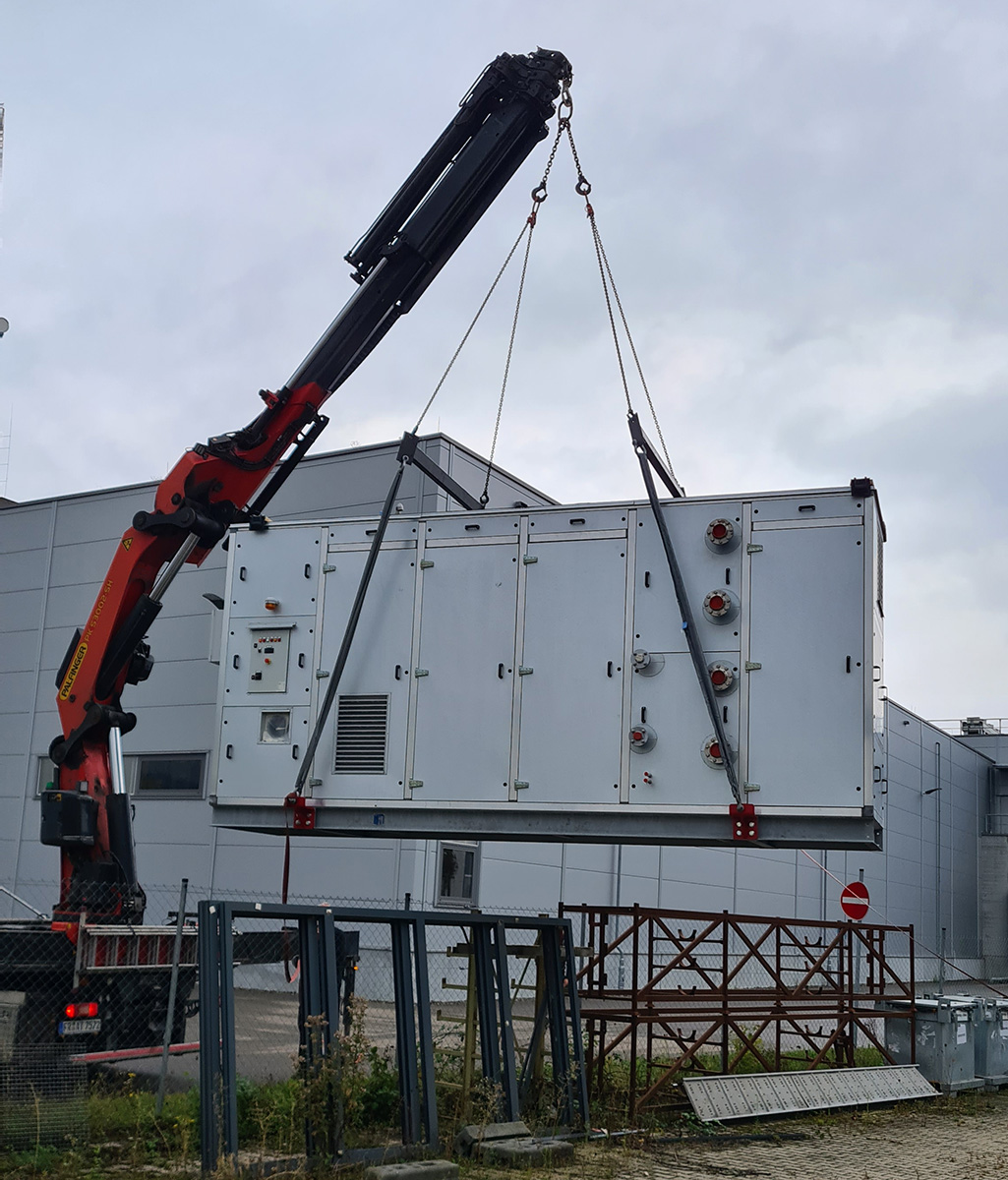| Duration: | 10/2021 - 09/2025 |
| Contracting Authority/ Sponsors: | Federal Ministry of Economic Affairs and Climate Action (BMWK) |
| Project Partners: | Johnson Controls Systems & Service GmbH (JCI), Stadtwerke Cottbus GmbH (SWC), GESMEX Exchangers GmbH, AGFW-Projektgesellschaft für Rationalisierung, Information und Standardisierung mbH, Fraunhofer IEG |
| Project Focus: |
Joint Project: FernWP
District and Process Heat Supply by Heat Pumps As a Substitute for Coal Combustion; Subproject: Planning, Construction and Operation of a GWP Test Plant
With the phase-out of coal-fired power generation, not only will large amounts of power generation capacity be lost, but also gigawatts of thermal capacity in district heating networks that will have to be replaced by low-CO2 alternatives.
Large-scale heat pumps at former power plant sites that feed heat into existing district or local heating networks are a promising alternative to decentralized solutions, especially in densely built-up urban areas.
The project aims to reduce the barriers to the timely integration of large-scale heat pumps into district heating systems, both from a technical and an economic point of view.
In order to better understand the possibilities of large heat pumps in district heating networks and to understand the optimal operating conditions, both technical boundary conditions, such as the availability of heat sources, and economic and regulatory boundary conditions will be investigated and a heat pump prototype will be developed and tested.
In WP 1, economically viable framework conditions are described that are required for the successful exploitation of the technological developments achieved in this project. In WP 2, low-temperature sources available at power plant sites are investigated. The focus is on surface waters as well as on further utilization possibilities of existing infrastructure. The basics of the theoretically possible cycle processes as well as the specification of the preselected refrigerants are worked on in WP 3 Thermodynamic Cycles. In WP 4, the collaboration in the IEA Annex 58 High Temperature Heat Pumps (HTHP) is planned. The efficiencies of the thermodynamic cycles identified in WP3 and the corresponding possible interconnections and components will be investigated in WP 5 COP optimization by an analysis at a laboratory test bench at Fraunhofer ISE. In WP 6, the scale-up of the laboratory plant tested in WP 5 on the basis of WP 3, the development of a test plant and investigations on market integration from a system perspective are carried out.
WP 7 provides an exchange platform that addresses the challenge that planners and investors are partly ignorant of existing technical possibilities and thus areas of application, and attempts to break down this barrier through knowledge transfer and targeted contact between the relevant stakeholders.
In WP 8 Piloting and Monitoring, a large-scale research heat pump will be built, operated and monitored, which will enable tests of various hardware components and which will simulatively allow the operation of the hybrid concept developed in WP 6. Valuable measurement data will be obtained during the test cycles of this experimental plant, which will be fed back to JCI and to ISE on the one hand, and on the other hand will contribute to a better understanding of the dynamic behavior in real operation and serve to verify the design parameters.
The potential of industrial HTWP for the provision of process heat will be worked out in WP 9 and the technical further development of the required components will be advanced.
